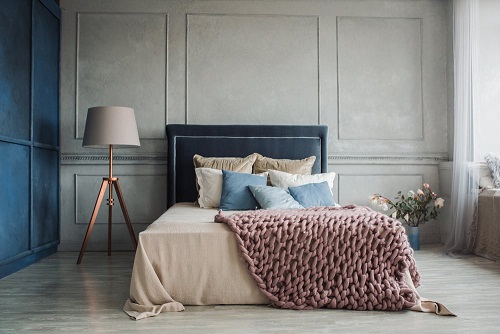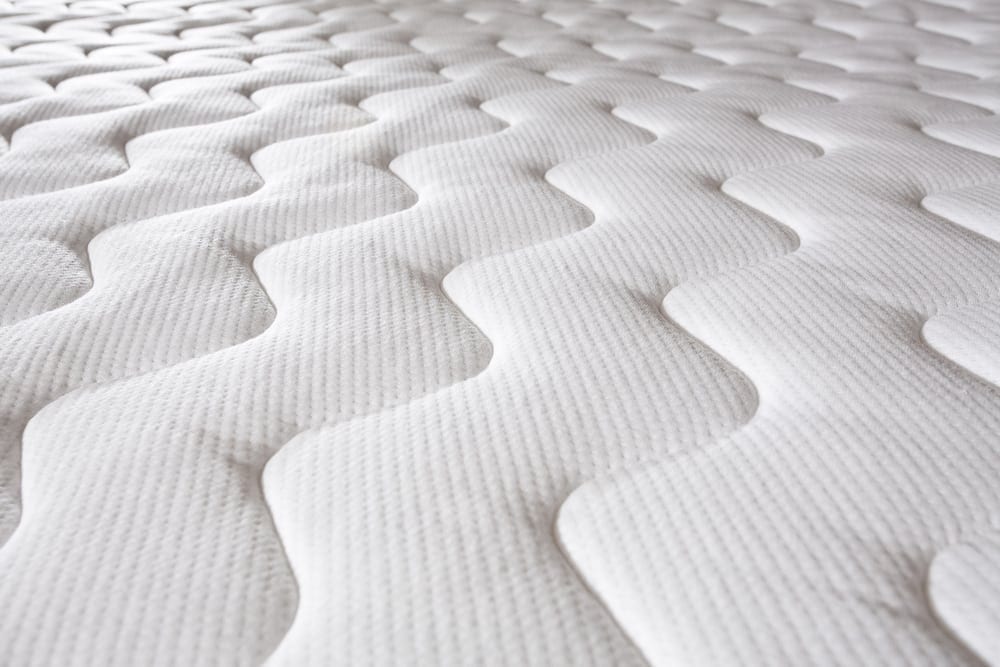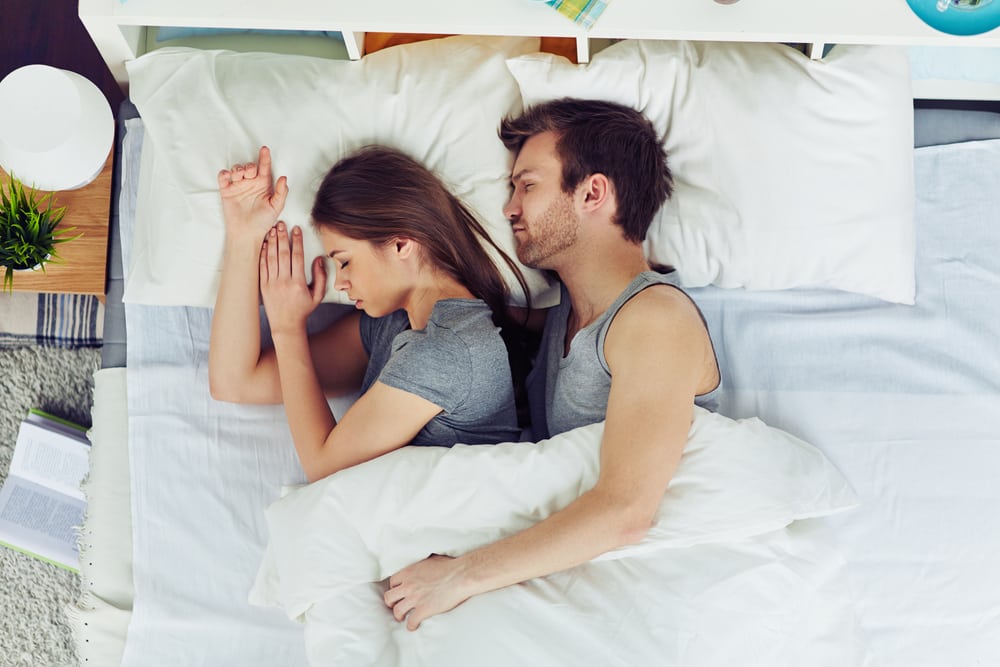The general advice on how to design your bedroom for a great nights sleep is to keep it cool, dark and quiet as per in cave-times. Our modern-day bedrooms are certainly cosier and safer than the caves our ancestors slept in. However, they can also be brighter, noisier and warmer, all of which all can affect our ability to fall asleep quickly and stay asleep throughout the night.
Top Ten Tips
Here are ten tips on how to design your bedroom for a great night’s sleep
1) Total darkness is vital to falling asleep easily
Try to eliminate all light from your bedroom. To test ‘light pollution’, switch all the lights off, allow a few minutes for your eyes to adjust, and then look for areas and items where you can see light. Then eliminate all light leakage. Blackout blinds are a great solution, especially in summer. A towel under the door can help too if light is coming under. Turn your alarm away from you or swap for a dawn simulator. If all else fails, get a high-quality sleep mask.
2) Keep your bedroom cool
Along with a decrease in light a decrease in core body temperature is one of our natural cues that it is time for sleep. Therefore the best bedroom temperature for you to get to sleep easily is quite cool at between 16 and 18 degrees Centigrade. Too hot, typically above 24 degrees, and you will have a restless night. However, if it is too cold, at around or below 12 degrees you will have difficulty dropping off. If your partner prefers it warmer, buy a cooling pad for your side or an electric blanket for their side. In the summer close your blinds & curtains during the day and have a fan or open window blowing through a damp sheet at night. Try putting your sheets/pyjamas in the fridge before using them if it’s especially hot.
3) De-clutter your bedroom and keep it tidy.
A tidy, de-cluttered and organised bedroom has been proven to improve sleep. This creates a more relaxed space to sleep in. Making your bed first thing is also linked with better sleep at night.
4) Never work in the bedroom.
Keep your work outside your bedroom it reinforces to your brain that the bedroom is a space reserved for sleep (and sex) only.
5) Keep it smelling fresh.
Wrong smells can stop us from getting to sleep easily. Lavender oil helps get you into a deeper sleep. Plants can also help the air quality.
6) Clean your bedroom regularly.
A clean bedroom improves your sleep and keeps you healthier, by ridding your room of dust, pet hair, pollen and bacteria. This reduces the risk of asthmatic attacks and allergic responses.
7) Change your sheets at least every two weeks.
Washing your bed linen in hot water, keeping your bed crisp and fresh helps you get to sleep more easily, and reducing dust mite risk at the same time.
8) Use calming pastel colours in the bedroom.
Calming colours include light blue, but especially avoid red, which will keep you awake.
9) Reduce outside noise.
Tape over gaps in windows or double-glaze them to reduce street noise. Use earplugs or a white noise generator if you can’t reduce outside noise or your partner snores loudly.
10) Get as big a bed as you can.
This is more important if you sleep with a partner. Super king size gives you twice the size of a single bed, whereas a double bed only gives you the same room as a baby in a cot. More space to sleep in means you get a better, less disturbed night’s sleep as a couple. If you think you need a new mattress I have added some information on what’s available. There are also tips on how to test a mattress so you get the best one for you.








